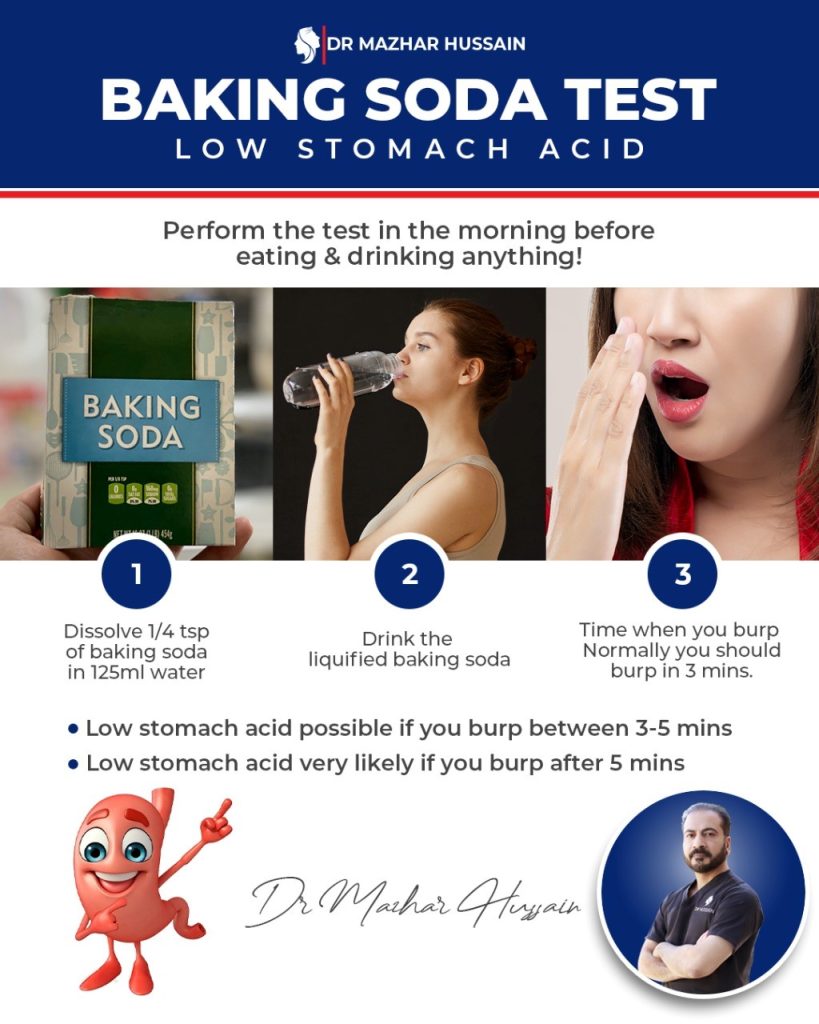At DMH Functional Medicine, we view the human body as an interconnected system, not a collection of independent organs divided by medical specialties.
The importance of stomach acidity for our health is an important reminder that every part and aspect of the body is connected in one whole organism.
Hypochlorhydria, low stomach acidity, is not just about the stomach and the acid. It affects our protein digestion, iron absorption and B12 absorption – just to mention a few of the important roles that the stomach acid play for our health. Let’s dive into this today.
Signs & Symptoms of hypochlorhydria
Some symptoms may relate to the GI-tract while other reflect a change to the overall functioning of the GI-canal causing more distant symptoms that seemingly not have anything to do with the gut.
- Bloating, belching, heartburn, and flatulence after meals
- Indigestion; diarrhea or constipation; undigested food in stools
- Multiple nutritional deficiencies
- Issues related to decreased protein digestion
- Increased autoimmunity or overt autoimmune disease
- Secondary effects from malnutrition, including anemia, weak bones, skin manifestations and many other signs and symptoms.
The above symptoms may look pretty benign, could indicate Irritable Bowel Syndrome (IBS) and may often not warrant any further investigations in conventional medicine.
However, we are not supposed to have GI issues after meal. Diarrhea and constipation is also not normal, in the sense that it is not a reflection of good health.
Causes of hypochlorhydria
A multitude of factors can cause hypochlorhydria.
- Ageing is a common one, with stomach acid levels naturally declining as we grow older. However, we don’t really know for sure whether the lower acidity reflects a natural development or if it reflects our poor lifestyle and diet over the previous many years that gradually causes declining stomach acidity
- Chronic stress, which disrupts the body’s metabolic processes, can also impair acid production.
- Processed foods
- Medications, most notably proton pump inhibitors (PPIs) such as omeprazole, nexium, somac and H2 blockers
- Autoimmune conditions such as pernicious anemia.
- Helicobacter Pylori infection

Diagnosis and Complications
Apart from the symptoms mentioned above, a certain pattern can be seen in the patient’s extensive blood tests. Deficiencies in B12, iron, zinc, calcium or reduced protein content in the blood may indicate hypochlorhydria.
A baking soda test can also be performed at home, which can further point towards low stomach acidity:
More advanced testing can also be relevant, like the Heidelberg test where the patient swallows a small electronic acid-measuring device. The patient swallows a small amounts of baking soda, which neutralises the hydrochloric acid in the stomach.
Also, a trial of hydrochloric acid capsules can be used to test if low stomach acidity is causing the patient’s symptoms.
Treatment Options
As with all diseases, the focus should be on addressing the underlying cause of the condition(s), although management of the symptoms may be required in the initial stages. The treatment of hypochlorhydria at DMH Functional Medicine will depend on what causes have been revealed.
Diet
A primary way to address Hypochlorhydria is through dietary changes.
- We recommend a diet high in nutrient-dense, whole foods and low in processed foods.
- Proteins also stimulate stomach acid production and should be taken in the beginning of the meal.
- Fermented foods such as kimchi and sauerkraut may also help by providing probiotics to support gut health.
- Improved eating habits are also important. Eating on the go, while stressed and working on the laptop will keep the body in a stressed state affecting the digestive process.
Lifestyle
Lifestyle modifications, including stress management, are crucial. Chronic stress can impair digestion, leading to lower stomach acid levels. Mindfulness, prayer, meditation, yoga, and regular exercise to help the body maintain optimal digestive health.
Supplementation
For initial symptom relief and to give time for relevant lifestyle and diet changes, supplementation with hydrochloric acid (HCl) may be required. This must be under medical supervision to temporarily restore stomach acid levels.
Digestive enzymes, pre- and probiotics may also be needed.
DMH Functional Medicine: Your Partner in Health
DMH Functional Medicine believes in personalized care. We will work closely with you to identify the root causes reduced stomach acidity in your case. This may not be the same as in the next person.
With our personalized nutrition guidance, stress management strategies, targeted supplementation, and a comprehensive treatment plan, we will be your partner towards better health and sustainable wellness.
References
- Kines K, Krupczak T. Nutritional Interventions for Gastroesophageal Reflux, Irritable Bowel Syndrome, and Hypochlorhydria: A Case Report. Integr Med (Encinitas). 2016;15(4):49-53. PMID: 27547161.
- Ianiro G, Pecere S, Giorgio V, Gasbarrini A, Cammarota G. Digestive Enzyme Supplementation in Gastrointestinal Diseases. Curr Drug Metab. 2016;17(2):187-93. doi: 10.2174/138920021702160114150137. 3. Waldum HL, Arnestad JS, Brenna E, Eide I, Syversen U, Sandvik AK. Marked increase in gastric acid secretory capacity after omeprazole treatment. Gut. 1996;39(5):649-53. doi: 10.1136